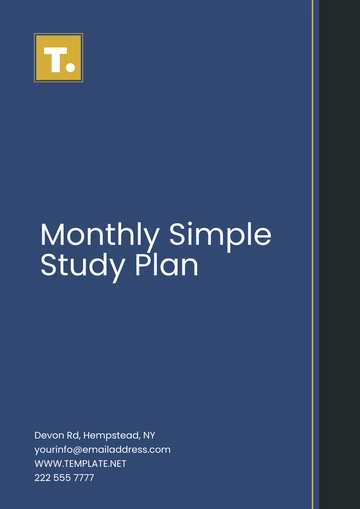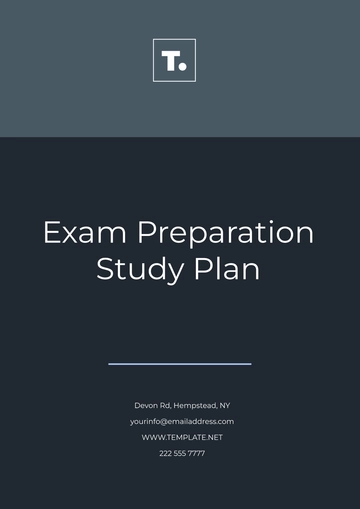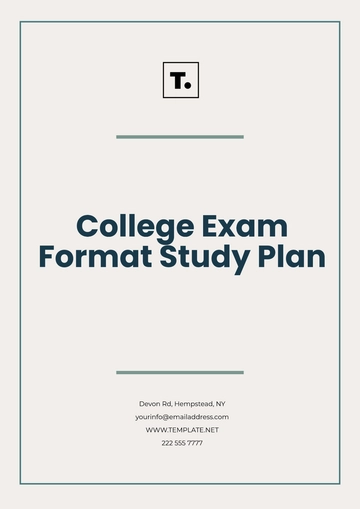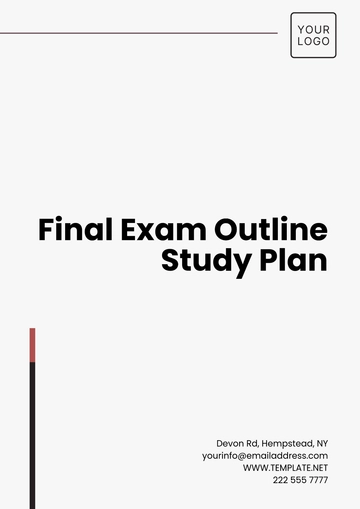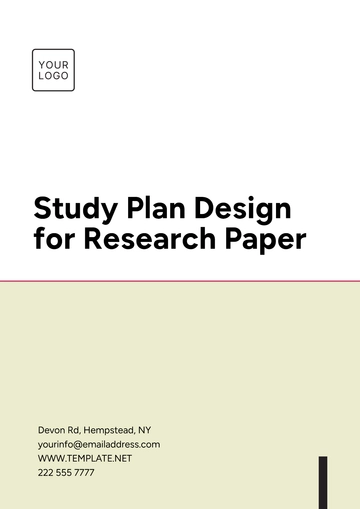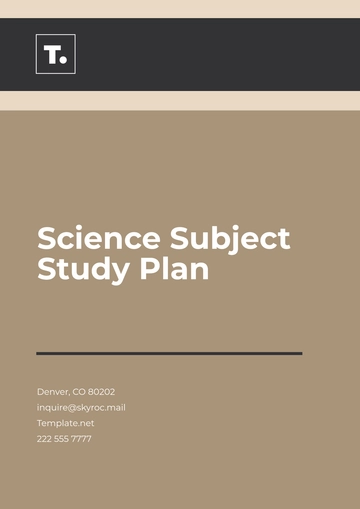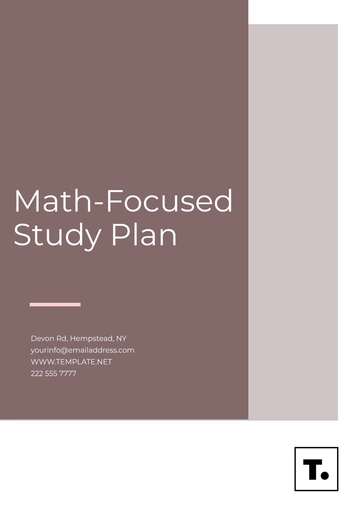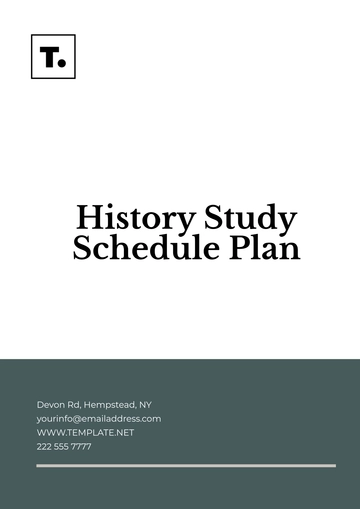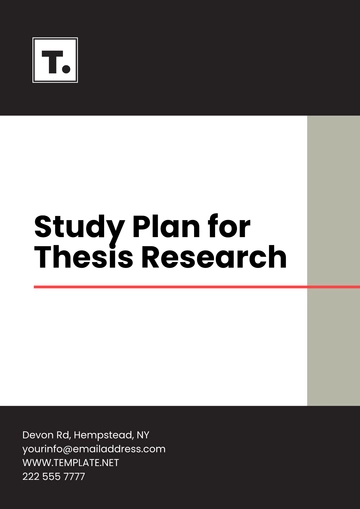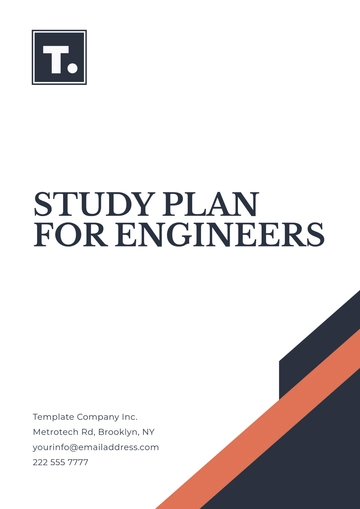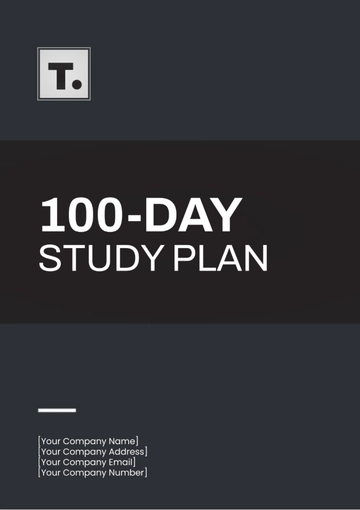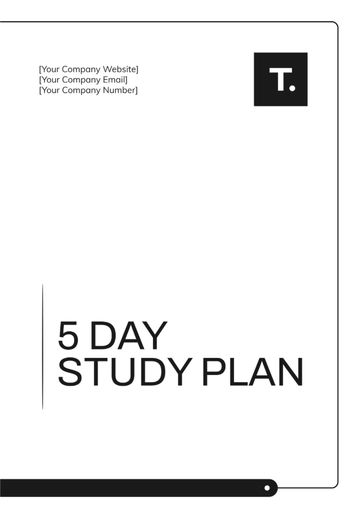Free 5 Week Study Plan
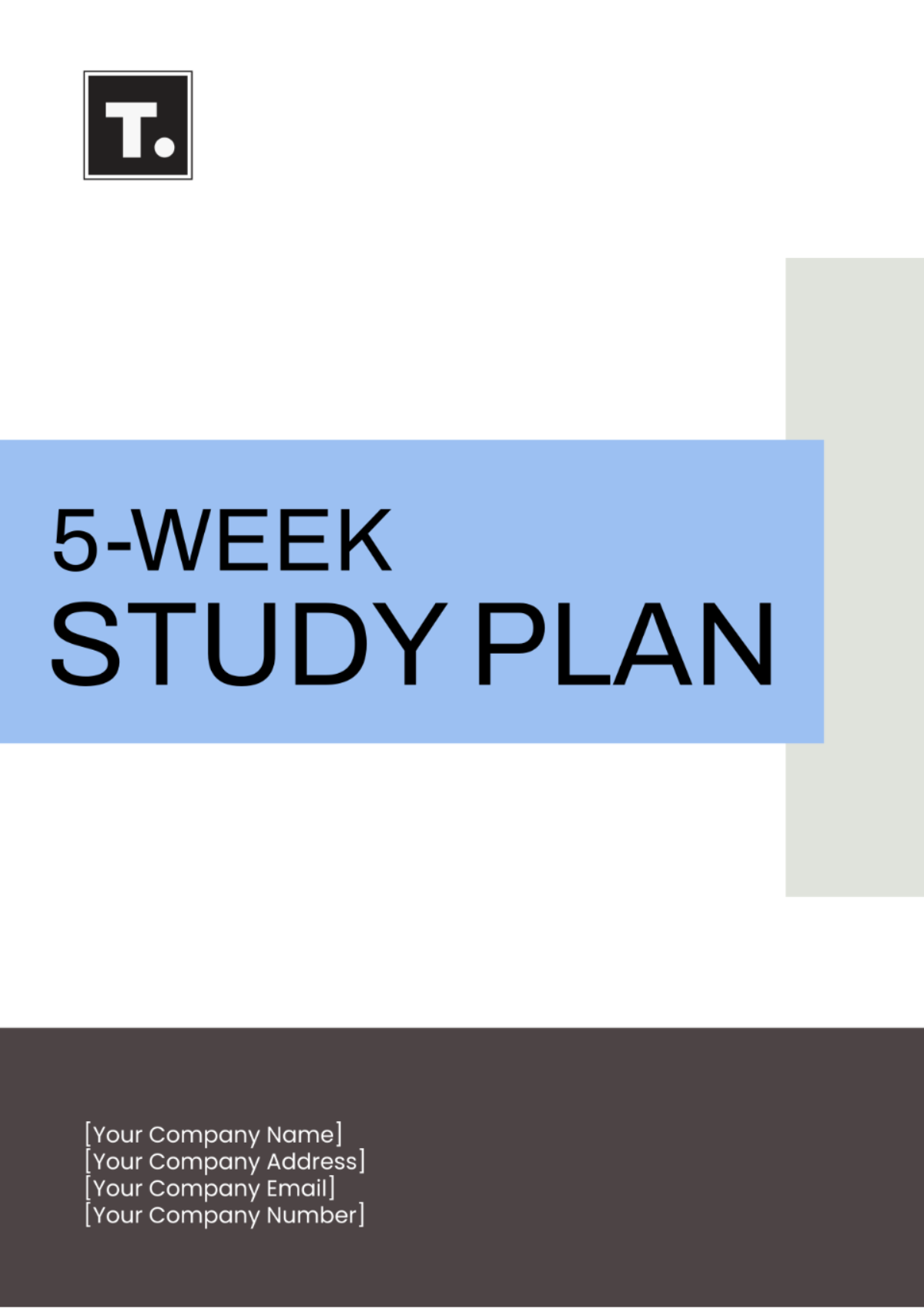
Name: | [Your Name] |
Address: | [Your Company Address] |
Date: | April 1, 2052 |
I. Objectives:
To achieve outstanding results in the Python programming portion of the forthcoming international examination at [Your Company Name], it is essential to develop a comprehensive and solid understanding of Python syntax, data structures, and algorithms. Additionally, it is crucial to nurture and enhance problem-solving capabilities that are indispensable for addressing and resolving intricate programming challenges efficiently within constrained time limits.
II. Weekly Schedule:
A. Week 1: Introduction to Python Basics
Days 1-3 (6 hours): Delve into Python syntax, data types, and basic operations.
Day 4 (2 hours): Engage in practical exercises to solidify understanding of variables and operations.
Day 5 (2 hours): Review key concepts and reinforce learning through practice problems.
Days 6-7 (4 hours): Explore control flow structures including loops and conditional statements.
B. Week 2: Functions, Modules, and File Handling
Days 8-10 (6 hours): Learn about functions, parameters, return statements, and modular programming.
Day 11 (2 hours): Practice writing functions and importing modules to streamline code organization.
Day 12 (2 hours): Review function concepts and address any lingering questions or challenges.
Days 13-14 (4 hours): Dive into file handling, error handling, and exception handling techniques.
C. Week 3: Data Structures and Advanced Topics
Days 15-17 (6 hours): Master data structures such as lists, tuples, sets, and dictionaries.
Day 18 (2 hours): Implement data structure operations through coding exercises.
Day 19 (2 hours): Review and reinforce data structure concepts through additional practice.
Days 20-21 (4 hours): Explore advanced topics including list comprehensions, lambda functions, and recursion.
D. Week 4: Object-Oriented Programming and Libraries
Days 22-24 (6 hours): Gain proficiency in object-oriented programming principles like classes, objects, and inheritance.
Day 25 (2 hours): Apply OOP concepts through hands-on coding exercises and projects. - Day 26 (2 hours): Review OOP concepts and address any uncertainties or challenges.
Days 27-28 (4 hours): Introduce popular Python libraries and frameworks for various applications.
E. Week 5: Project Week and Final Review
Days 29-31 (10 hours): Dedicate time to working on Python projects simulating exam scenarios.
Day 32 (3 hours): Refine project work, document solutions, and ensure code quality.
Day 33 (3 hours): Conduct a comprehensive review of all topics covered, focusing on weak areas.
III. Study Resources
"Python Crash Course" by Eric Matthes (book) for comprehensive coverage of Python fundamentals.
Online courses from reputable platforms like Udemy or Coursera offer structured learning paths and practical exercises.
Video tutorials from trusted Python instructors such as Corey Schafer and Spandex for visual explanations and demonstrations.
Practice exams and sample questions provided by the exam board to simulate exam conditions and assess readiness.
IV. Assessment Strategy
Regular quizzes and tests to gauge comprehension and track progress throughout the study period.
Completion of coding assignments with specific evaluation criteria focusing on code readability, efficiency, and adherence to best practices.
Participation in peer review sessions and discussion forums for collaborative learning and feedback exchange.
V. Flexibility and Adaptation
Modify your study schedule according to the results obtained from practice exams and through a self-evaluation of your strengths and weaknesses. This process should involve allocating extra time to those topics that are found to be particularly challenging, either during your review sessions or from feedback provided by mentors or peers.
It is also crucial to remain informed about any changes or updates to the exam syllabus and to make necessary adjustments to your study materials and strategies to accommodate these changes.
VI. Relaxation
To maintain focus and avoid burnout, it is essential to incorporate regular breaks and leisure activities into your study schedule. This allows for mental rest and rejuvenation which is crucial for sustained intellectual engagement. Additionally, ensuring adequate sleep is vital for cognitive function and overall health. Prioritizing healthy habits, such as engaging in regular physical exercise and consuming nutritious meals, also plays a fundamental role in supporting cognitive abilities and promoting general well-being.
VII. Seeking Support
Actively participate in online forums and study groups to seek help, exchange ideas, and work collaboratively on solving problems. Additionally, it is beneficial to seek advice from mentors, tutors, or instructors to gain clarification on complex subjects and to receive tailored guidance for your studies.
VIII. Exam Day Preparation
Create a comprehensive checklist for exam day essentials including identification, writing materials, and any permitted resources.
Practice relaxation techniques such as deep breathing or visualization to manage exam anxiety and maintain focus.
Review key concepts, problem-solving strategies, and time management techniques to approach exam questions effectively and confidently.
- 100% Customizable, free editor
- Access 1 Million+ Templates, photo’s & graphics
- Download or share as a template
- Click and replace photos, graphics, text, backgrounds
- Resize, crop, AI write & more
- Access advanced editor
Discover and Stay organized and achieve your academic goals with the 5 Week Study Plan Template from Template.net. This fully customizable and editable template is designed for efficiency. Easily tailor it to your needs using our Ai Editor Tool, ensuring a personalized study experience that keeps you on track.


